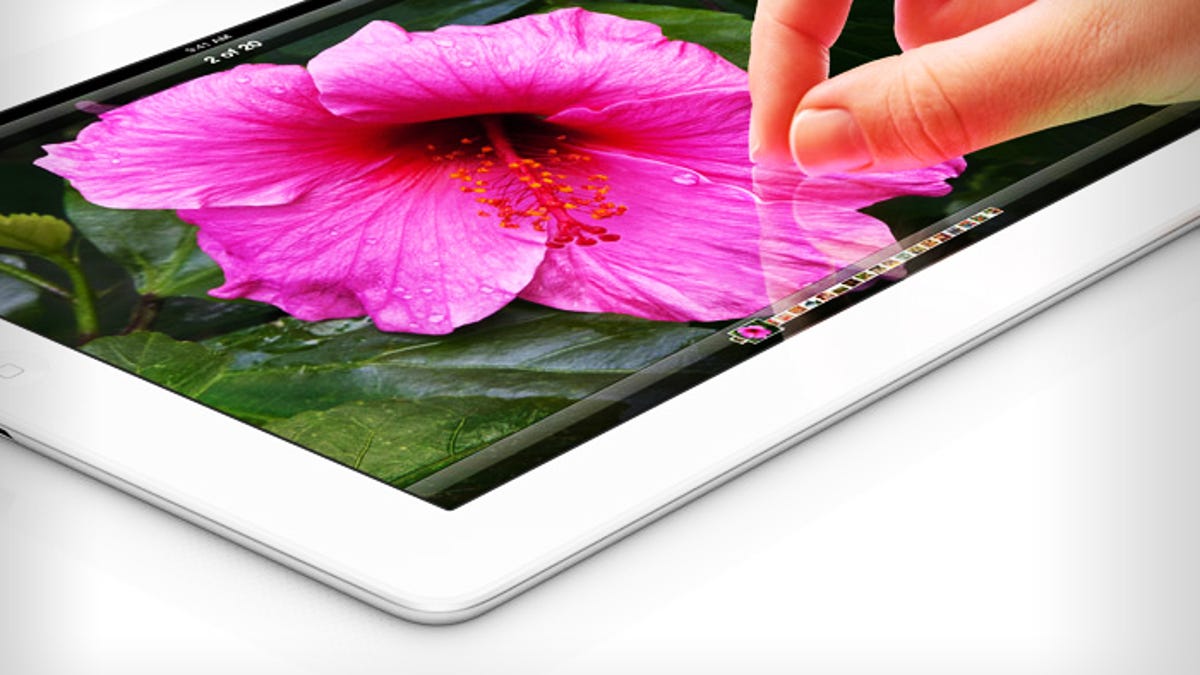New iPad doesn't blow me away, and it doesn't need to
The upgrades to the new iPad aren't important. You're not buying it for innovation anymore; you're buying it for the ecosystem.

commentary To anyone complaining that the new iPad isn't revolutionary enough: Who cares?
Apple's new iPad offers only a few key upgrades--things like an improved display, faster processor, better camera, and 4G LTE. Even the marquee feature of the iPhone 4S, Siri, didn't make its way to the new tablet.
Gadget enthusiasts and tech geeks are going to cry foul over the lack of any true innovation. Where's Siri? Where's the iPad Mini? Why no quad-core? But the truth is, Apple could have put nearly anything out and it would have still been massively successful.
Why's that? Because when you're buying an iPad, you're buying into the Apple ecosystem. The iPad isn't dominant just because it's a cool device, but because it stands alongside other immensely popular devices in the
"The new iPad marks a turning point for the tablet industry," said Soumen Ganguly, a consultant for Altman Vilandrie & Co. "It's not tablet versus tablet anymore. It's ecosystem versus ecosystem."
Personally, I resisted the iPhone craze for years, instead sticking to my trusty
Yes, Google offers something similar with its cloud services (arguably superior) and its array of Android devices (hit or miss), but Apple offers a more consistent experience.
I don't think I'm alone in this. Remember the 15.4 million iPads that were sold in the fourth quarter? Just wait until the new iPad drops. Innovation or not, Apple's momentum is going to keep on building.
I wrote earlier this week that Apple's competitors are starting to catch up on the innovation front. With the new iPad announcement, that still holds true. Yes, iPad stepped it up on the display front, but it offered little else that was wholly new.
In fact, it's Apple's rivals that are going out on a limb with new features. Competitors are experimenting with new sizes, like Samsung Electronics, reaching new levels of affordability, like Amazon and Barnes & Noble, and trying out different peripherals such as keyboards, like Asus. The competing tablets have been quicker to hop on the quad-core train, though Apple dismisses the notion that its chip is slower. The iPad is only now embracing 4G, something Samsung has done with its
Heck, even Apple has tacitly acknowledged this. Its home page playfully teases the new iPad as "resolutionary," with the company knowing full well it can't call the device revolutionary.
A lot of readers got angry with the assertion that Apple's competitors were catching up, but they missed the point. While rivals have certainly caught up and exceeded Apple on the innovation front, it doesn't matter in regard to the bigger picture of creating a good product and user experience.
There continue to be a lot of red flags with the alternatives. Android is still too complicated for average consumers (Ice Cream Sandwich helps, but isn't prevalent enough). It, along with the PlayBook, has a relatively weak library of apps. The Kindle Fire is a sluggish device with low-end specifications. All of those things give me pause when I consider making a purchase.
So for all the extra features and bells and whistle of rival tablets, the iPad remains the one tablet I would recommend to average consumers. No other device is as easy to use or offers a wider breadth of tablet-specific apps. More importantly, no other device works so consistently well within an ecosystem as the iPad does with the iPhone, MacBook, and, increasingly, Apple TV. The array of services, as well as some of its own key apps, keep it above the fray.
"Apple's insistence on blending hardware innovation with services innovation will keep the iPad at the front of the tablet pack for the foreseeable future," said Forrester analyst Sarah Rotman Epps.
Even if you're not part of the Apple ecosystem, the ease factor makes the iPad a winner. My friend asked me a few days ago about which tablet to buy for his mother-in-law. He wanted to buy an Android tablet, which would work better with his own phone, but I emphatically recommended the iPad.
With the debut of the new iPad, there's even more reason to snap one up--even if the reasons aren't revolutionary.

